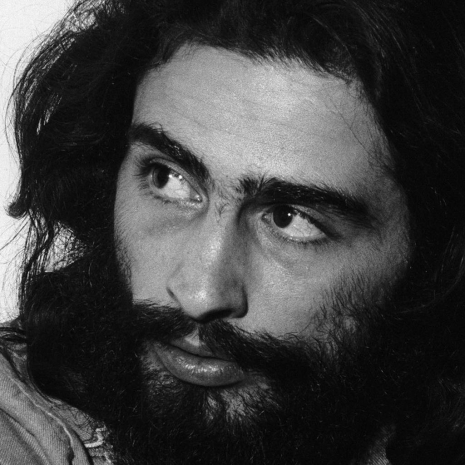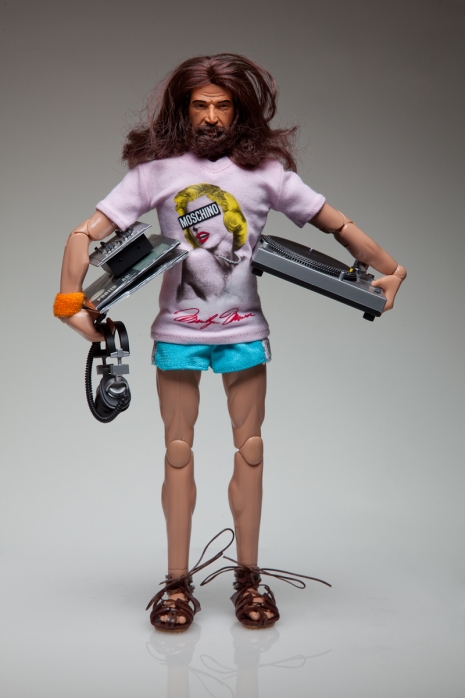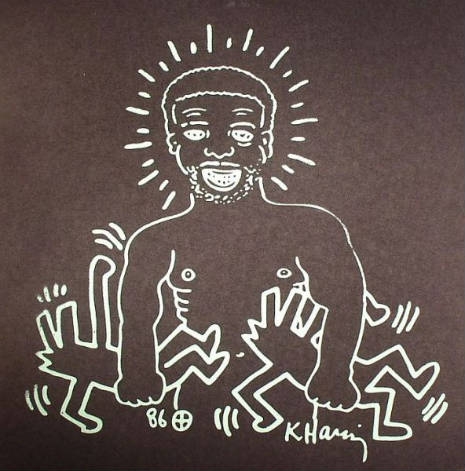
As if 2016 didn’t suck enough already, Monday night saw the passing of one of the most influential (yet unheralded) figures in late 20th century popular culture. That man’s name was David Mancuso, and if you’ve ever danced to great records on a great sound system in a room full of smiling people and thought “could Heaven ever be as good as this?” then David Mancuso is the person you have to thank.
Mancuso, a one-time follower of LSD guru Timothy Leary structured his parties into three stages, and borrowing from The Tibetan Book Of The Dead (as Leary had for his guided LSD sessions) he termed them “Bardos”:
“The first Bardo would be very smooth, perfect, calm. The second Bardo would be like a circus. And the third Bardo was about re-entry, so people would go back into the outside world relatively smoothly.”
The parties Mancuso started throwing in his Manhattan home in 1970–which eventually picked up the moniker “The Loft”—are the absolute ground zero for dance culture as we know it today. This isn’t some hyperbolic statement: practically every one of the great NYC DJs who emerged during the 1970s and 80s—from Larry Levan to Frankie Knuckles to Danny Krivit to Kool Herc to Afrika Islam to David Morales to Junior Vasquez to Danny Tenaglia—are indebted in one way or another to Mancuso’s work (many being regular attendees at his Loft parties). And that’s just the DJs. Plenty of club owners were inspired to open their own nightclubs after visiting The Loft, often with the same shared values as Mancuso’s: peace, love, unity and diversity. While music was the main focus, socially the Loft was incredibly mixed. From day one the majority of the patrons were both homosexual and non-white. The freedom that could be found on The Loft’s dancefloor helped attendees fully express their (often marginalized) personalities, bond with people from both their own social circles and further afield, and helped them shape a vision together of the kind of world they would like to live in once the party had ended and they had left Mancsuo’s home. All to a spellbinding soundtrack carefully chosen by Mancuso himself, music that would later be classified as “disco,” but which was, in reality, simply the very finest in funk, soul, jazz, rock and electronica.
I was lucky enough to meet and interview David Mancuso, for my Discopia fanzine, back in 2003. He had recently come out of a period of relative inactivity, and was touring the world, trying to set up each and every venue he played in to be as close as possible to his New York home. I met him in Glasgow’s CCA, in between testing out the specially-hired audiophile event PA and beginning to blow up the hundreds of balloons that would become his party’s’ signature decoration. What follows is an abridged version of that interview, and while I would have liked for there to have been a happier occasion for digging this talk out and dusting it off, it’s still a fitting tribute to a man who changed not just my own life, but the lives of countless others. Rest in peace, David!
Dangerous Minds: You’ve been DJing for a long time. What is it that makes you still want to do it?
Mancuso: Well, actually, that was the last thing I wanted to do! And to this day it’s the thing that scares me the most.
What, DJing?!
Mancuso: Yeah. I mean it’s not something I fantasized about or wanted to do. But as I started doing my own parties I sort of found where I could be the most help. Also I was into sound systems, so there was a whole relationship there. But the DJ part of it really, and not to be vague, but the music really plays us. Really it’s an opportunity where one can shed their ego. Sort of like having an out of body experience. So I feel there’s a responsibility with the sound, with certain aspects and so forth, that I can contribute to.
Is it still going in New York?
Mancuso: Yeah, I’m about to do my 33rd anniversary. I don’t do it as frequently, as I don’t have a permanent location. The last four or five years the rents and things have gotten so astronomical and the parties are not designed to make a lot of money, okay? And I’m not into having a bar. It’s a very private, very personal thing that’s me and my friends. That’s what this is all about, it’s not about being a club. It’s not out there in the commercial world. The music relates to all these situations, yes, but it’s a very personal thing.
Can you tell me a bit about the sound system and how it is set up?
Mancuso: Well basically it’s set up around the fundamentals of physics, of sound. And this is not magic, some kind of formula for having, you know, a really great sound system. It’s not about that at all. It is set up and designed to be honest and respectful to the music. You wanna hear the music not the sound system. Usually what happens is, you’ve probably seen this yourself, they put four stacks up, then face them toward the middle.
Right.
Mancuso: Well that’s just not how things work. Your voice is coming from there, my voice is coming from here… You get my point? It’s not coming from [over there], there’s not two more of us. But that’s a formula people have used and in some cases they just don’t know, but it’s got nothing to do with music standards. I mean if you take two flashlights and you switch two beams at each other they cancel.
So you start with the centre ‘cos there’ll be three speakers. The centre channel is mono. It has a lot to do with the vocals. You come down the room, and there’s two more, one in each corner. Then two on the sides which are delayed, but reinforce the sound. So whatever the artist is doing [it replicates], just as my voice is travelling from this point down that room as if you were sitting down there and vice versa. You relay exactly what’s happening. It’s all mathematics. So it’s set up to be as though there people, standing there playing instruments.

An action man styled as David Mancuso by Reggie Know
Over here [UK] we get told a lot about certain clubs and the Loft is one of them…
Mancuso: Correction, it’s not a club, please! Sorry, I got a little out of hand…
That’s okay.
Mancuso: ...but once you start going in that direction you start getting away from what the Loft is all about. I mean I’m here on a tour, but this is not the Loft. First of all the Loft is a feeling. While there are certain aspects that reflect the Loft and how it develops, it’s not the same. The name “The Loft” itself is not a name I gave it, it’s a given name. People eventually started saying that, ‘cos what is it? Oh, it’s my house! This is not about the club scene. I find some of them are really good, but that’s not what this is about. Sorry, I’m not trying to give you a hard time.
No that’s cool, it is a distinction that need to be made. But in terms of the clubs that people hear about over here, especially the New York stuff like the Paradise Garage and the Gallery, did you go to any of them?
Mancuso: Yeah, of course. I mean, I know Nicky [Siano] very well, I knew Mike Brody very well, I knew Larry [Levan] very well, and the bar for quality as far as a sound system goes was much higher. Part of what the Loft did was contribute to that. People started, in about ’73, opening up other lofts and things, and they had to have a good sound system ya’know. So that’s one of the things the Loft has done. But these days the quality has gone down, in a lot of situations.
In terms of general quality?
Mancuso: Yeah, be it musical, or less musical. I mean you ever go into a place and you can’t make out the words, or you can make out some of them? It should be very precise.
Continues after the jump…







